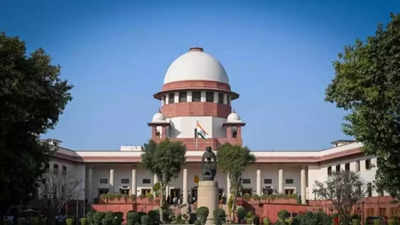NEW DELHI: Observing that the offence of money laundering posed serious threat not only to the financial systems of the country but also to its integrity and sovereignty and could not be regarded as an ordinary crime, Supreme Court on Thursday said courts should refrain from taking a casual or cursory approach while granting bail as it should be given only when the twin conditions under PMLA are fulfilled.
A bench of Justices Bela M Trivedi and Prasanna B Varale said the burden was on the accused to prove that he was not involved in generating proceeds of crime. The bench set aside the order of Patna high court granting bail to an accused and directed him to surrender.
The apex court’s order is significant as it comes against the backdrop of a series of orders by different courts seeking to extend “bail is the norm, jail an exception” principle to PMLA cases.
SC sets aside ‘casual and cavalier’ bail order of HC
Section 45 (of PMLA) imposes two conditions for grant of bail to any person accused of an offence punishable for a term of imprisonment of more than three years under Part A of the Schedule. The two conditions are that (i) the prosecutor must be given an opportunity to oppose the application for bail; and (ii) the court must be satisfied that there are reasonable grounds for believing that the accused person is not guilty of such offence and that he is not liable to commit any offence while on bail. As well settled, these two conditions are mandatory in nature and they need to be complied with before the accused person is released on bail,” the bench said.
Setting aside the bail order, the bench said HC passed the order in a “very casual and cavalier manner”, without considering the rigours of Section 45 and there was no finding that there were reasonable grounds for believing that the respondent was not guilty of the alleged offence under the Act and that he was not likely to commit any offence while on bail.
“The offence of money laundering is not an ordinary offence. It has been regarded as an aggravated form of crime world over and the offenders involved connected with the proceeds of crime are treated as a separate class from ordinary criminals. Any casual or cursory approach by courts while considering the bail application of the offender and granting him bail by passing cryptic orders without considering the seriousness of the crime and without considering the rigours of Section 45 cannot be vindicated,” the bench said.
“It is a very serious offence which is committed by an individual with a deliberate desire and the motive to enhance his gains, disregard ing the interest of the nation and the society as a whole, and such offence by no stretch of imagination can be regarded as an offence of trivial nature. The stringent provisions have been made in the Act to combat the menace of money laundering,” it added.
The bench said Section 24 provides that in case a person is charged with the offence of money laundering, the authority or court shall, unless the contrary is proved, presume that such proceeds of crime are involved in money laundering. “Therefore, the burden to prove that proceeds of crime are not involved in money laundering would lie on the person charged with the offence,” the bench said.
In this case, accused Kanhaiya Prasad, who is the son of politician Radha Charan Sah, was arrested in Sept 2023 and was granted bail by HC in May 2024. As per ED, both father and son were involved in illegal sand mining in Bihar.


